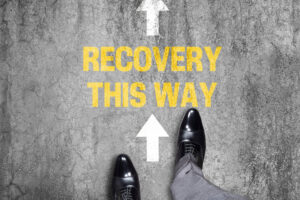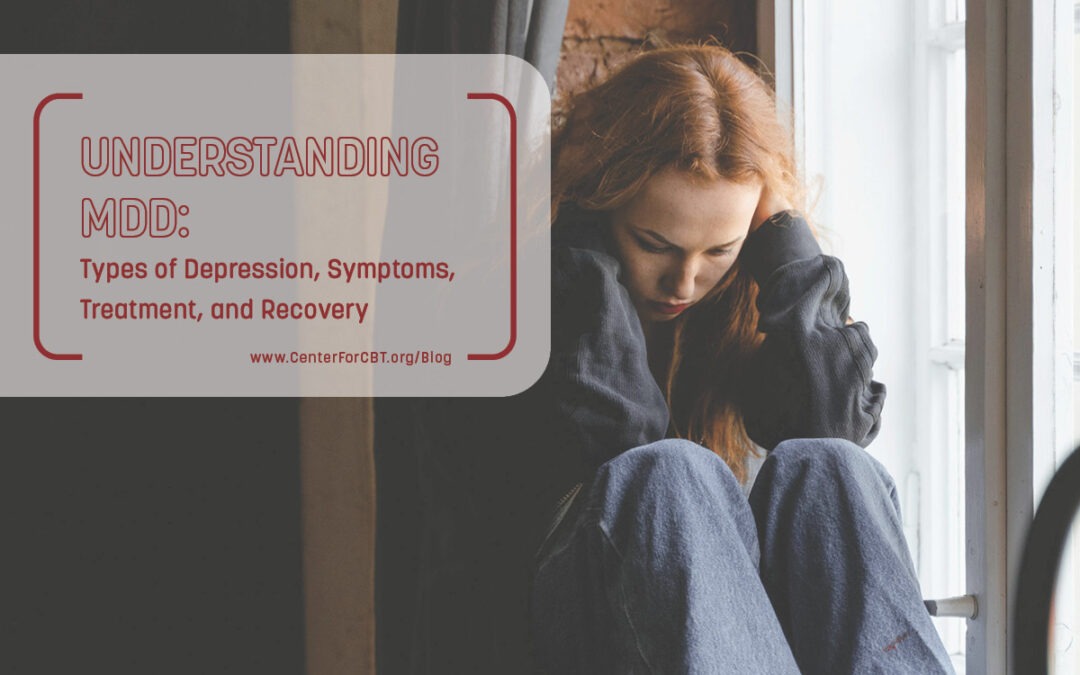Major depressive disorder (MDD) is a common but serious mood disorder that can impact many areas of a person’s daily life, causing significant emotional, physical, and psychological distress. Depression can also affect a person’s social life, performance at school or work, and negatively impact their ability to complete everyday tasks. It is more than just feeling sad or experiencing a bad day—it is a medical condition that can affect anyone, regardless of age, background, or circumstances. To better understand depression, this article explains the different forms it can take, outlines effective treatments, and discusses steps that can be taken to build a life worth living.
What is Major Depressive Disorder?
Major depressive disorder (MDD) is the most common form of depression. In the United States alone, depression affects millions at an estimated 20.1% of all adolescents, and about 8.3% of all adults. Not all individuals who experience depression receive a formal diagnosis or treatment. However a formal diagnosis can offer a better understanding of what someone is experiencing and clarify what steps can be taken to help improve their condition. It also enables clearer communication between clients and the providers in their care team, which enables clients to get the support they need.
When clinicians assess an individual for MDD, they will look for specific criteria outlined in the DSM-V. Individuals who receive a formal MDD diagnosis experience at least five of the following symptoms:
- Persistent low or depressed mood
- Decreased interest in once pleasurable activities (anhedonia)
- Feelings of hopelessness, worthlessness, or excessive guilt
- Fatigue or a lack of energy
- Difficulty concentrating
- Changes in appetite (either increased or decreased)
- Sleep disturbances (either increased or decreased need for sleep)
- Restless or slowed movements (psychomotor agitation or retardation)
- Suicidal thoughts or recurrent thoughts of death

Recognizing the Signs of Depression
Signs and symptoms of depression can vary widely among individuals. It is important to look out for these symptoms, which may include:
- non-suicidal self-injurious behaviors
- suicidal ideation/ behaviors
- increased anger/ irritability
- feeling restless and on edge
- increased withdrawal and isolation
- increased impulsivity
- increased use of drugs or alcohol
- inability to meet responsibilities
Those who receive a depression diagnosis may experience other emotional or behavioral symptoms, like mood dysregulation. They may also be diagnosed with a comorbid disorder such as
Other Types of Depression
Depression manifests in various forms, influenced by an individual’s unique history and life circumstances. Not all experiences with depression are classified as a major depressive disorder. Some other common types of depression include:
- Seasonal Affective Disorder (SAD): a type of depression that usually begins in the fall or winter months and subsides in the spring or summer. It is believed to be linked to reduced sunlight exposure during the shorter days of fall and winter.
- Perinatal/Postpartum Depression: occurs during pregnancy or after childbirth. This type of depression can include physical pains, difficulties bonding with the baby, and challenges in forming emotional attachments.
- Persistent Depressive Disorder (Dysthymia): characterized by a less severe but longer-lasting form of depression, where symptoms persist for at least two years.
Treatment Options for Depression
The good news is that depression, even in its most severe forms, is treatable. The most common evidence-based treatments for depression include:
- Dialectical Behavioral Therapy (DBT): Helps individuals develop skills such as mindfulness, emotional regulation, distress tolerance, and improved interpersonal effectiveness. The core skill sets of DBT can help individuals learn how to overcome struggles with mood and behavior to build a life worth living.
- Cognitive Behavioral Therapy (CBT): Focuses on identifying and changing negative thought patterns, developing new coping skills, and encouraging positive behaviors.
- Interpersonal Therapy (IPT): Addresses problems in personal relationships that contribute to depressive symptoms.
Some people may benefit from a combination of therapy and medication management. It is important to remember that everyone’s experience with depression and response to treatment is unique—what works for one person may not work for another.
Seeking Help: You’re Not Alone
If you or someone you know is struggling with depression, reaching out to a licensed psychologist can be an important first step toward healing. At the Center for CBT, our experienced


